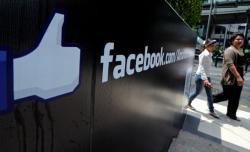Facebook’s initial public offering on Friday is notable in part because Facebook is a gigantic, fascinating, and famous company. But it’s also notable because IPOs have become incredibly rare. Between 1980 and 2000, an average of 311 companies went public per year, more than one every day the markets were open, according to a recent paper by Xiaohui Gao, Jay Ritter, and Zhongyan Zhu.
The IPO rate cratered after the stock market crash in 2000, but has never recovered. Since 2000, there have been 102 IPOs per year on Wall Street, with the falloff especially concentrated among smaller companies. The decline is often invoked as an argument for rolling back financial regulations adopted in the wake of the accounting scandals at Enron and WorldCom. The truth, however, is that the decline of the IPO reflects fundamental shifts in the structure of the economy—both well-exemplified by Facebook’s recent history.
Mention the decline in IPOs at a gathering of Wall Street types and murmurs of “Sarbox” inevitably rise from the crowd. This is shorthand for Sarbanes-Oxley, a series of stringent accounting regulations adopted after it was revealed that several firms were inflating their stock price via fraud.
Sarbox’s compliance costs are real enough, and since they apply only to publicly traded firms, they do constitute a deterrent to going public. But this logic forgets why the law was passed in the first place. The main incentive for going public is to get rich by offering shares to the public. And a public with no confidence in firms’ accounting statements is going to heavily discount their price. Sarbanes-Oxley compliance is a genuine hassle for managers, but not a real barrier to raising capital. Regulations create the transparency that allows people to invest with confidence. If we had no Securities and Exchange Commission, we’d barely have any IPOs, because only the most sophisticated or gullible investors would dare own stocks. (This explains why, for example, many investors are still reluctant to put their money in overseas companies in nations with poorly regulated stock markets.) Moreover, the IPO drought continued after 2007 revisions to Sarbox that made compliance much easier.
The real causes of the decline are twofold—both illustrated by Facebook.
One is that entrepreneurs seem to be placing more value on control and less on making money. You see this in the unusual structure of the Facebook IPO, which is designed to ensure that Mark Zuckerberg will call the shots no matter how many people buy stock. You also see it in a recent unorthodox stock split from Google that, likewise, was designed to maximize founder control even at the cost of depressing share price.
Research indicates that relatively few American small business owners are trying to found world-conquering companies. Most of them are trying to make a living while seeking the nonpecuniary benefits that come from not having a boss. As the high-tech world matures, it should come as no surprise that more startup founders are aiming for a similar path. Nice, useful services are now being offered by tiny shops such as Instapaper and Pinboard, whose founders don’t seem to want to answer to investors or manage large teams.
The other issue, discussed by Gao, Ritter, and Zhu, is that what they call “economies of scope” increasingly make acquisition by an existing firm rather than an IPO the best route forward for most growing companies. They offer statistical evidence for their hypothesis, but the basic issue is clearly illustrated by Facebook’s recent $1 billion acquisition of Instagram. There’s just no way a company with literally $0 in revenue could obtain that kind of valuation as a stand-alone publicly traded company. But as a Facebook target, Instagram probably was worth $1 billion. Sharing photos is Facebook’s most popular use case. Mobile is the future of computing. And Instagram is the most popular and fastest-growing mobile photo-sharing service in the world. All billion-dollar investments are risky, but paying a premium to bring that technology in house rather than making the investment to try to build a competing service makes sense.
Contrast that with the likely fate of Dropbox, the excellent cloud storage service that turned down an acquisition offer from Apple. Now Apple offers competing cloud storage and so do Google and Microsoft. Dropbox’s service is still more trusted and widely used by early-adopters, so the company has plenty of value as an acquisition target. But if it continues to insist on going it alone, it will very likely be crushed by competitors who offer cloud storage as a feature to enhance the appeal of core products (hardware for Apple, advertising for Google, operating systems for Microsoft) rather than a core profit center.
In other words, don’t expect Facebook’s offering to launch a new wave of IPOs. If anything, rather than inspiring more companies to follow in its wake, a successful Facebook launch could achieve the reverse. The richer Facebook gets, the more likely future tech startups will find a bright future selling out to it rather than going public on their own.
